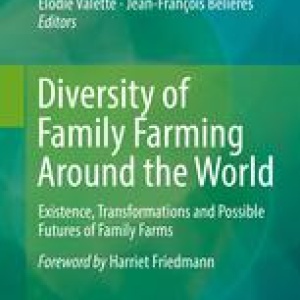
This book explores 18 case studies of family farming across several continents through a ‘sustainable rural livelihood’ framework. The authors are from both academia and development bodies.
Publisher’s summary
This book aims at explaining the nature and strength of the links between the families and their farms looking at their diversity throughout the world. To do so, it documents family farming diversity by using the sustainable rural livelihood (SRL) framework exploring their ability to adapt and transform to changing environments. In 18 case studies in Asia, Africa, Latin America and Europe, it shows how family farms resist under adverse conditions, seize new opportunities and permanently transform. Family farms, far from being backwards are potential solutions to face the current challenges and shape a new future for agriculture taking advantage of their local knowledge and capacity to cope with external constraints. Many co-authors of the book have both an empirical and theoretical experience of family farming in developed and developing countries and their related institutions. They specify what makes and means family in family farming and the diversity of their expertise draws a wide and original picture of this resilient way of farming throughout the world.
Reference
Bosc, P.-M., Sourisseau, J.-M., Bonnal, P., Gasselin, P., Valette, E., Bélières, J.-F. (eds.), 2018. Diversity of Family Farming Around the World: Existence, Transformations and Possible Futures of Family Farms. Springer Netherlands.
For more details, see here. See also the Foodsource building block What is the land sparing-sharing continuum? for its discussion of smallholder farmers.












Post a new comment »